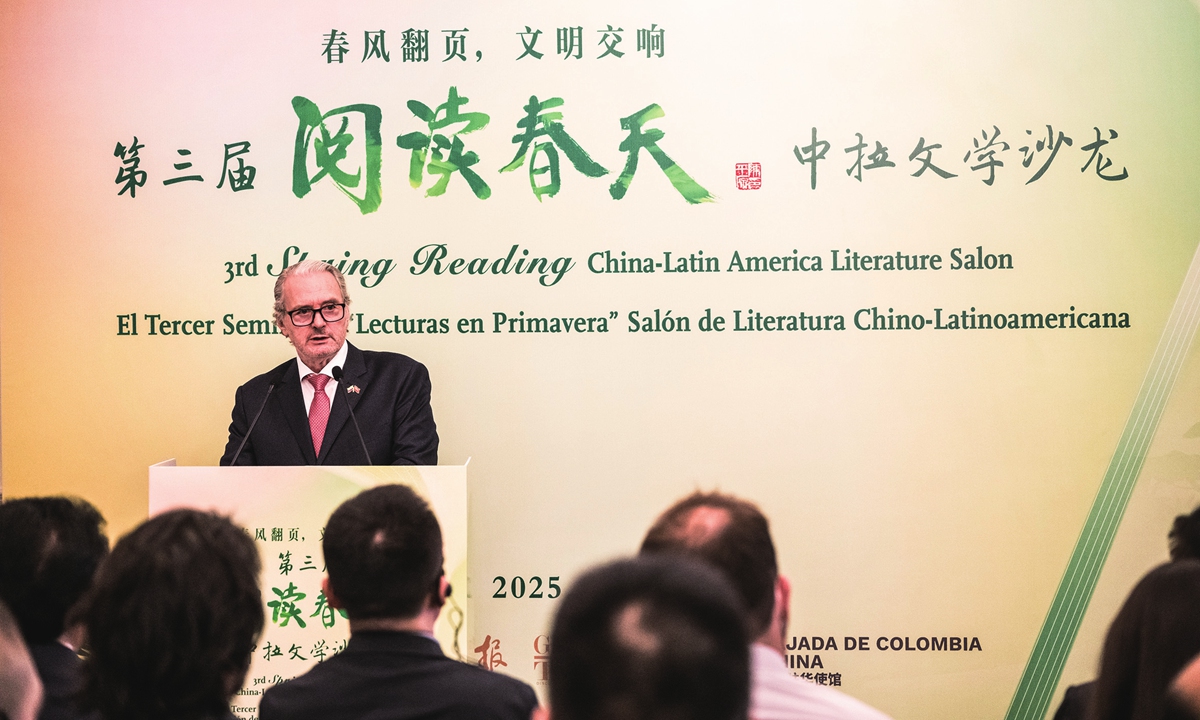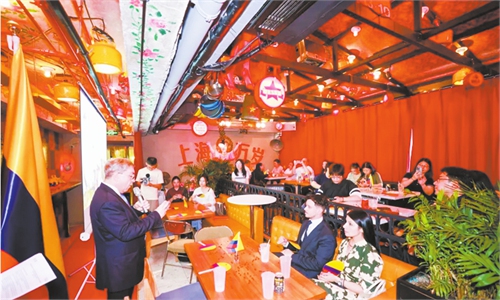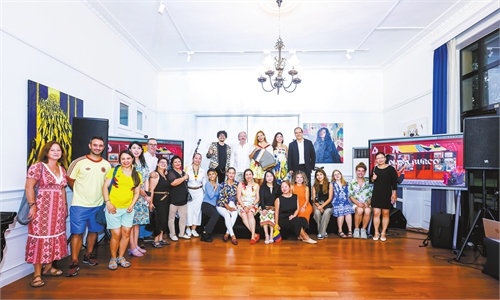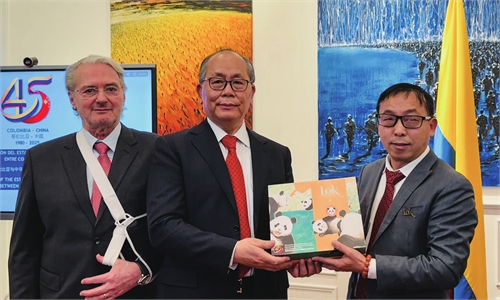ARTS / BOOKS
Colombia: 45th anniversary of the establishment of diplomatic ties celebrated with China-Latin America Literature Salon
Colombia: 45th anniversary of diplomatic ties celebrated with China-Latin America Literature Salon

Sergio Fausto Cabrera Cárdenas, ambassador of Colombia to China speaks at the "Spring Reading" - China-Latin America Literature Salon at the hall of the embassy in Beijing on April 22, 2025. Photo: Chen Tao/GT
The year 2025 marks the 45th anniversary of the establishment of the diplomatic relations between China and Colombia. Ahead of the 30th World Book Day, the Global Times and the Embassy of Colombia in China co-hosted the 3rd "Spring Reading" - China-Latin America Literature Salon at the hall of the embassy in Beijing on April 22. Avid readers enjoyed a sunny afternoon with experts in a literary dialogue. Guests took advantage of the event to learn more about the civilizations of China and Latin America.In his remarks, Deputy Editor-in-chief of the Global Times Bai Long said that from the oriental interpretation of magical realism in One Hundred Years of Solitude to the reading boom of contemporary Chinese literature in Latin America, books carry not only words, but also the genes of civilizational exchange and mutual learning.
"It is reading that allows the ancient legends of the Andes and the millennium wisdom of the Yangtze and Yellow Rivers to meet quietly between the pages of books," said Bai, noting that the Global Times has always been a witness and promoter of the interaction between civilizations.
In his opening remarks, Colombian Ambassador to China Sergio Cabrera said, "This is a special year for the relationship between our country and China as we celebrate the 45th anniversary of the establishment of the diplomatic ties. It is a moment to reflect on our shared history and consider how we can project this partnership and friendship into the future."
Some of our most renowned Colombian figures - such as Nobel laureate Gabriel Garcia Marquez and sculptor Fernando Botero - have left an indelible mark, said the ambassador. Meanwhile, Colombia is home to three Confucius Institutes and several Confucius Classrooms spread across the country, he introduced. Literature reflects the spirit and soul of a nation. "In literature, we find the true face, the hidden history of individuals whose stories shape the identity of a country." Colombian literature is rich and diverse, and has been widely translated into Chinese. Classic works such as The Vortex by José Eustasio Rivera were translated and well received by Chinese readers. Of course, the works of Gabriel Garcia Marquez, Álvaro Mutis, and many others are also widely known and celebrated, said the ambassador.
In a panel discussion, Santiago Gamboa, writer and minister counselor of the Embassy of Colombia in China, said that he was deeply touched by the Chinese readers' respect and love for Garcia Marquez. Thanks to the influence of literature that is passed down from generation to generation, literature itself has developed into a rich country. He shared that he is also influenced by Mo Yan, one of China's most accomplished contemporary writers. Overall, China is already a part of the big family of literature, and now its relationship with this big literature family is even closer, Gamboa said.



